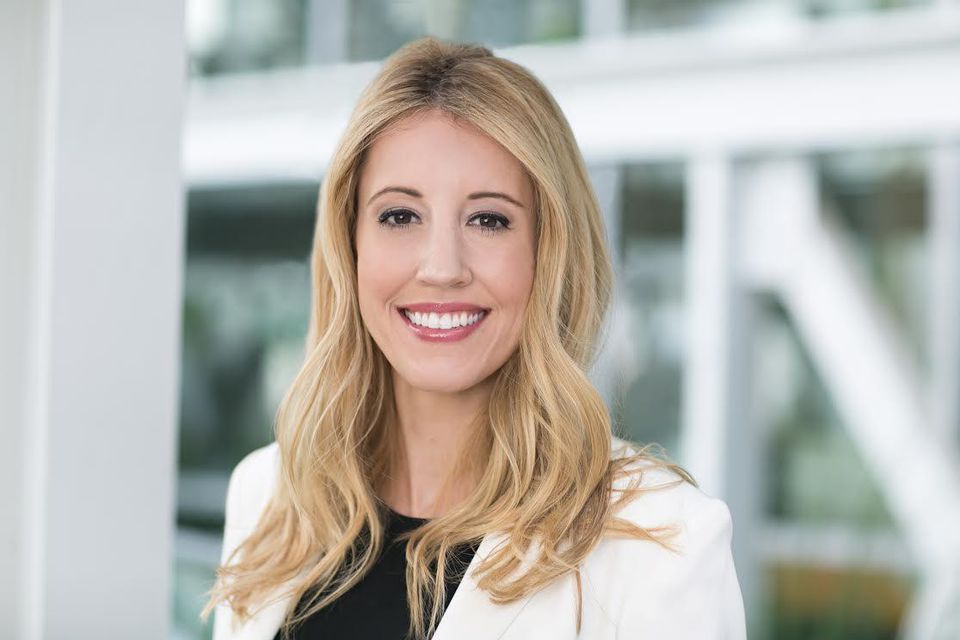Julia Cheek started her company to create a better solution for a problem she faced. In 2015, Cheek was working in consulting when she started to feel sick and spent six months going to specialists who ran a variety of lab tests to find out why she wasn’t feeling well. “I never got the results and nothing was ever explained to me. But because I was on a high deductible plan, months later I ended up getting bills from the labs for hundreds and hundreds of dollars – totaling up to over $2,000 in out-of-pocket in costs,” says Cheek. After all the doctors’ appointments and lab tests, she learned that she had multiple hormone and vitamin deficiencies. The experience inspired the Harvard Business School graduate to build EverlyWell, her at-home lab testing company, later that year.
EverlyWell offers a variety of regulatory-compliant, physician-mediated at-home lab tests, including sexual health, thyroid, metabolism, men’s health and breast milk DHA testing. The detailed, easy-to-understand results are accessible via EverlyWell’s secure website. The team has raised $5M in venture capital funding as of May 2017. When Cheek presented EverlyWell on Shark Tank, Lori Greiner gave $1M as a line of credit at eight percent interest for a five percent equity stake. I spoke to Cheek about how she is making the healthcare industry more accessible.

From a tactical perspective, how did your team develop the tests and get the right approvals in place?
Our mission since the beginning has been about access to affordable, easy lab testing. We work with certified labs and a virtual physician network to provide that testing in a home-kit experience.
While we customize panels with our lab partners, we didn’t create new tests or technologies. Instead, we’ve built technology that empowers people to get tests more easily. Our medical director works with the labs to create panels that are already validated and clinically-relevant and understandable for consumers.
What has been the biggest challenge and, on the flip side, the biggest reward of starting EverlyWell?
It’s been a very rewarding and challenging experience starting and growing a company but, ultimately, I can’t imagine going back! I think one year at a startup is equivalent to five years in the corporate world – I’ve had to become an expert in every function and grow the company and team at a very fast pace.
When it comes to some of the biggest challenges, for one, I don’t have a background in the healthcare space. As a result, I was intentional in surrounding myself with people that could fill that knowledge gap. Among my first hires was a medical director, and I also brought on regulatory advisors as well as technology and marketing leaders.
The response from our customers and our team keeps me going. In particular, it’s been rewarding to talk to our overwhelmingly large group of female customers – who make 70% of the healthcare decisions in a family and also make roughly 80% of the consumer purchasing decisions. Our tests are giving these women the affordable access they need to make informed decisions about not only their own health, but the health of their family members.
What are the most important characteristics someone needs to have to be successful in your role?
Having a strong sense of self and never-give-up work ethic are two key traits to entrepreneurship. Also, knowing how to deal with criticism is key. I receive criticism all the time: from employees, from potential investors, from the media. I’ve learned to take what’s valuable and let go of the rest. If I worried about 99% of people thinking the company wouldn’t work, then I wouldn’t have started the company. It’s a bit counter to the idea of entrepreneurship in and of itself! I can’t worry about being liked, but rather I want to be respected, valued, thoughtful and fair.
I have to ask because I’m a big fan: What was your Shark Tank experience like?
I’m a big Shark Tank fan, and I’ve watched the show for a number of years. One of our investors, Halle Tecco, the founder of Rock Health, and one of our board members mentioned that they thought the show would be a good idea, so I ended up applying.
The application took about 15-20 hours to complete, and there is an extremely low probability that you will even make it on-air. But I was really committed, and I felt like the audience for Shark Tank was where I wanted to tell our story. We have a consumer product, and people don’t even know that this option exists for lab testing. We know that our brand and consumer education is incredibly important to our growth, so it was really a once-in-a-lifetime opportunity to get to pitch the sharks for an investment.
The actual experience was definitely nerve-wracking! You get one shot to tell the story to the sharks and to America. I put a ton of pressure on myself to be sure I could tell the story of EverlyWell in the best light – and ideally get a deal from a shark. We’re extremely excited to be partnering with [Greiner]. Her investment will help us roll out more than 12 additional tests this year. We’ll also be announcing several big partnerships that will all make our at-home health tests even more accessible and affordable for our consumers.
You’ve raised $5M in venture capital funding. What advice do you have for other people who are raising venture capital?
I would say, choose your investors wisely. As founder and CEO of EverlyWell, I’ve been through multiple funding rounds, and I’ve experienced first-hand how difficult the process can be. One of my top pieces of advice for raising your first round of funding is choosing the right type of investor for your business. Pick your investors the same way you would pick your employees: Look for someone who is a fit from both a skill set and cultural perspective. Know exactly why you want to work with them and why they should fund you. You need to know how it fits in with their portfolio and vision – and you want to vet them as much as they vet you. You can waste a lot of time talking to great venture capitalists or angels who just structurally or philosophically don’t fit with your company.
What are some of the biggest challenges and rewards of being in the healthcare and medical testing industry?
We’ve had the challenge of maintaining a level of discipline from day one that we simply cannot compromise. When you’re a startup you want to be disruptive and transformative but, in our case, we are working with people’s health and their data, so privacy and regulatory compliance have always been a top priority.
The response for our customers has definitely been the most rewarding part of being in this industry. We are giving people the tools they need to take control of their own health. For example, we had one customer that utilized our Vitamin D and inflammation test after experiencing inflammation and fatigue. Through this, she learned her hs-CRP was abnormal, and after visiting her physician she found out that she had Thyroid cancer and she was then able to go into treatment and is now in remission. We received life-changing testimonials from our customers every day, and that is the best part about being in the healthcare industry.
What is the best advice you’ve ever received?
Hold your principles. Clayton Christensen, one of my professors from business school, said: “It’s easier to hold your principles 100% of the time than it is to hold them 98% of the time.” To me, this holds true in life and in entrepreneurship. As a founder, you set the standard for the company and the team. You’ll make a lot of mistakes, but doing the right thing—in any type of situation—is critical to building respect and being proud of your own actions.
What is your business advice for other young professional women?
This is a really great time for female entrepreneurs. Women developing ideas and creating products from their personal experiences is powerful. We represent a large majority of the purchasing power in the country. And the narrative that has been brought to light recently is important and critical, but I want to fight for people to want to still be founders. I think this is the best career path in the world, and I want to encourage other women to take the leap.
Image courtesy of Julia Cheek, EverlyWell, and Whitney Martin Photography.































